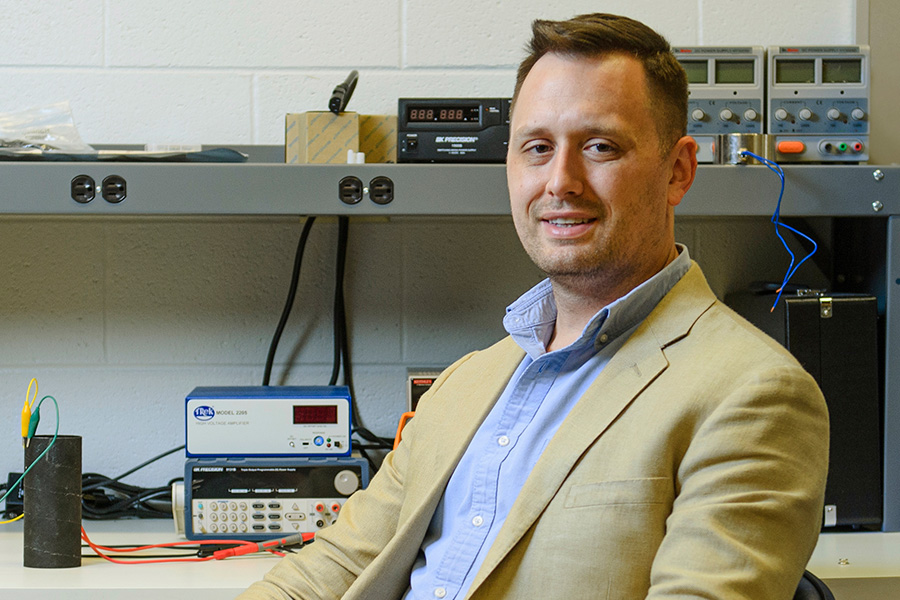Tyler Tallman receives Young Investigators Research Program award from the Air Force Office of Scientific Research

It’s critical to know when and how a structure will fail, especially under the extreme conditions facing spacecraft and military aircraft. A new class of materials can be 3D-printed with embedded sensors, but using these materials in the real world means combining the output with a variety of sensors to compute a holistic picture — a nontrivial task.
That data fusion problem is what AAE Assistant Professor Tyler Tallman is hoping to solve, and he just received major validation of his pursuit: A three-year, $445,000 grant from the Air Force Office of Scientific Research’s (AFOSR) highly competitive Young Investigator Research Program (YIP). It supports his proposal titled, “Data Fusion for Self-Sensing Additively Manufactured Polymer Matrix Composite State Awareness.”
Tallman’s research group has been working on material state awareness and inverse problems for years, expanding into multifunctional AM materials around 2017. He was drawn to this work for its interdisciplinary nature: It requires understanding how electrical properties can be embedded in 3D-printed materials, how those electrical properties change with evolving loads, and the inverse mathematics needed to correlate the electrical changes with physical state changes.
His proposed research hopes to build foundational techniques that will enable further development of state awareness in additively manufactured (AM) polymer matrix composite (PMC) materials.
“The scientific heart of this work concerns creating basic knowledge on this inverse problem by understanding the role of data fusion, defining suitable optimality metrics for considerations such as sensor type and placement, and extending this conceptual framework to the specific case of AM PMCs,” Tallman says.
Though he finds this award personally validating, he won’t be working alone. “This grant will allow me to support several graduate research assistants each year. So, in addition to having the resources needed to develop this technical area, I’m excited to develop and train the next generation of engineers, who will hopefully continue to contribute to the mission of the U.S. Air Force.,” he says.
“I am extremely grateful to the U.S. Air Force, and Program Manager Dr. Erik Blasch, for giving me this opportunity, and to collaborators at the Air Force Research Lab for helping me align the core competencies of my research group with their research interests.”
